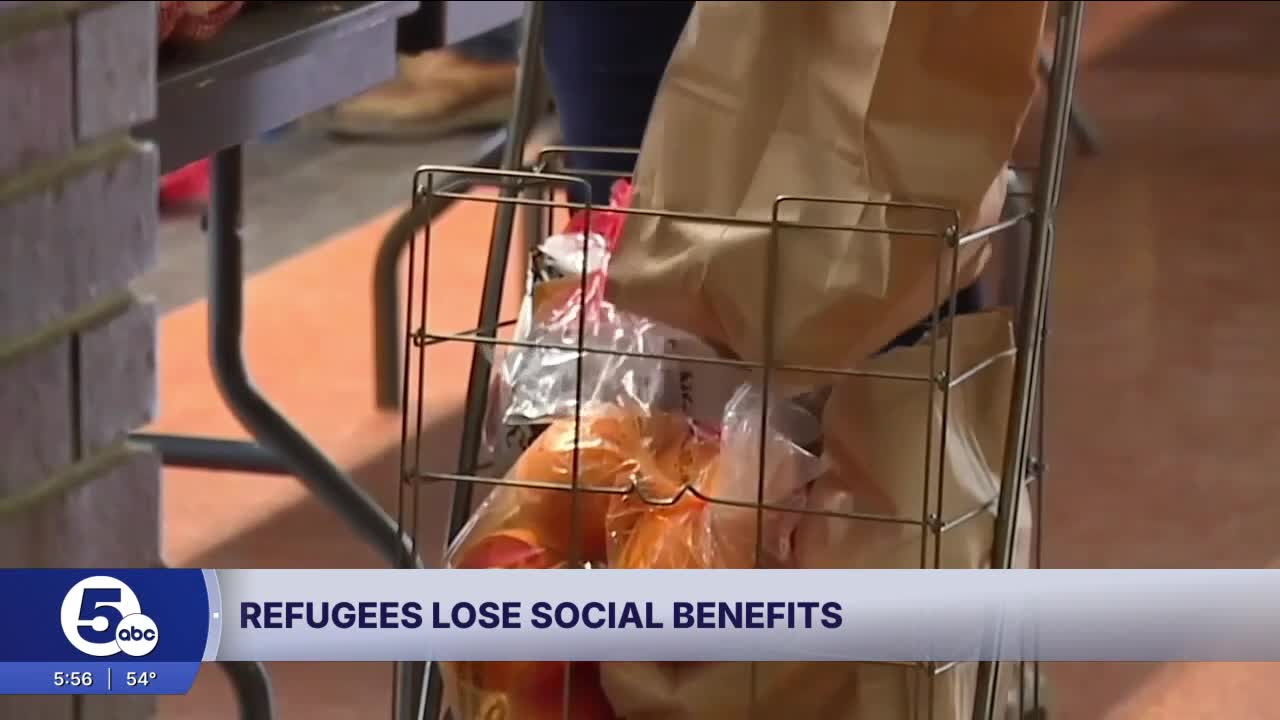CLEVELAND — First, all new arrivals were halted. Then, funding was cut—and now, Supplemental Nutrition Assistance Program (SNAP) benefits have come to an end for many because of the national spending bill.
Three years ago, Akbar Shenwari resettled in Cleveland with his family of seven from Afghanistan.
The U.S. Committee for Refugees and Immigrants (USCRI) helped him get on his feet and find a job, while government services like SNAP helped cover groceries.
“For a family of seven like me, we were given about $800 with the food benefits, plus I was working as well,” said Shenwari.
But now, that help is gone.
“It's a very, very bad situation right now,” said Shenwari.
“For the first time ever in the history of the United States refugee assistance program, families who would be arriving in the United States will no longer be granted the same social benefits they have,” said Darren Hamm, field office director for USCRI Cleveland.
As of Nov. 1, the federal budget bill called the "One Big Beautiful Bill Act" dramatically cut access to SNAP benefits for refugees.
“Any individual here who (is) a lawful permanent resident, we often called green card holder, had to be living here for a period of five years or under the age of 18 to continue qualifying for SNAP,” said Hamm.
That change dramatically affects the work USCRI does to help resettle refugees.
“We bring people in, we can do all this work with them over time and get them really well acclimated and show that they are successful contributing members of the community, but we can't replace things like food assistance and medical assistance,” said Hamm.
Statewide, 13,000 refugees will be affected- including about 4,000 right here in Cuyahoga County.
“Making a choice between paying rent and buying food is going to be a situation that a lot of people will be left with or paying a utility bill and buying food,” said Hamm.
SNAP isn’t the only resource on the line — next year, it’s Medicaid.
“For individuals who faced persecution and war to come to the United States and face instability is something I think we should all be concerned about,” said Hamm.
For Shenwari, it’s not only his clients who are affected — it’s his own family too.
“Well, it's a pressure; we have a family of seven. I start my day five in the morning with Uber, and then I come to the office, and after office hours, I go back, and I do Uber again. Sometimes it’s 15 to 18 hours work that I’m doing for my family, because if I don’t, it would be really hard for me to have food for my children,” said Shenwari.
But for a man who came to the U.S. For a better life, he refuses to lose faith or believe that the country he loves will leave him behind.
“People came to me and say, 'Just buy the ticket' and 'I want to go back, because this is not what we thought it would be, this country.' And I said patience. This country is a beautiful country with the quiet patience—you will achieve your goal,” said Shenwari.
USCRI said they’re connecting clients with distribution services across the area — until they can find a more sustainable way to replace snap support.





